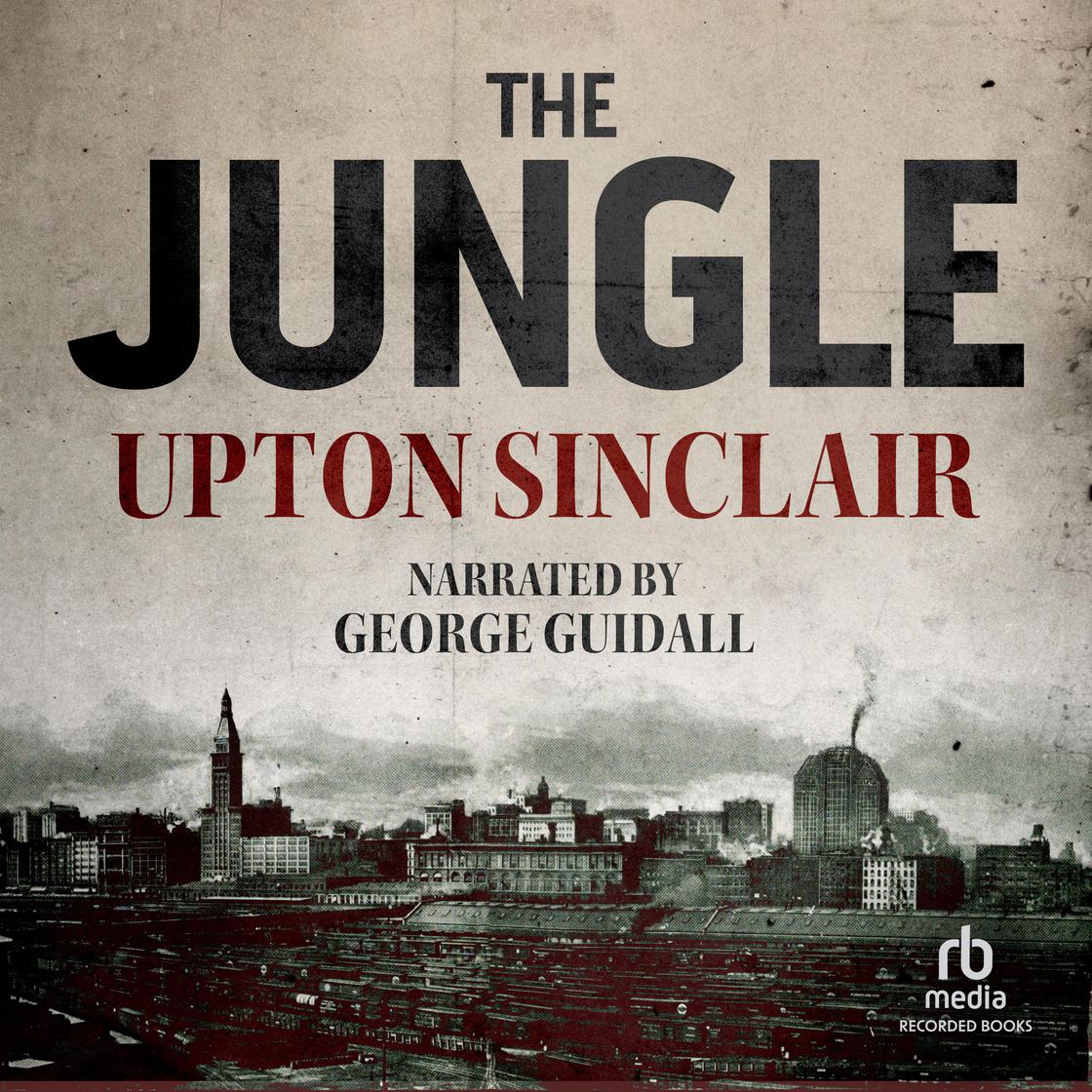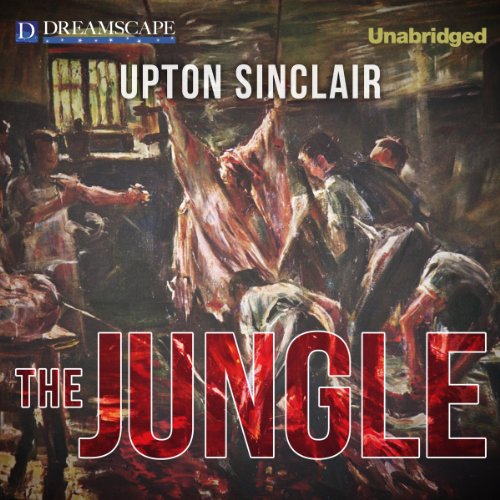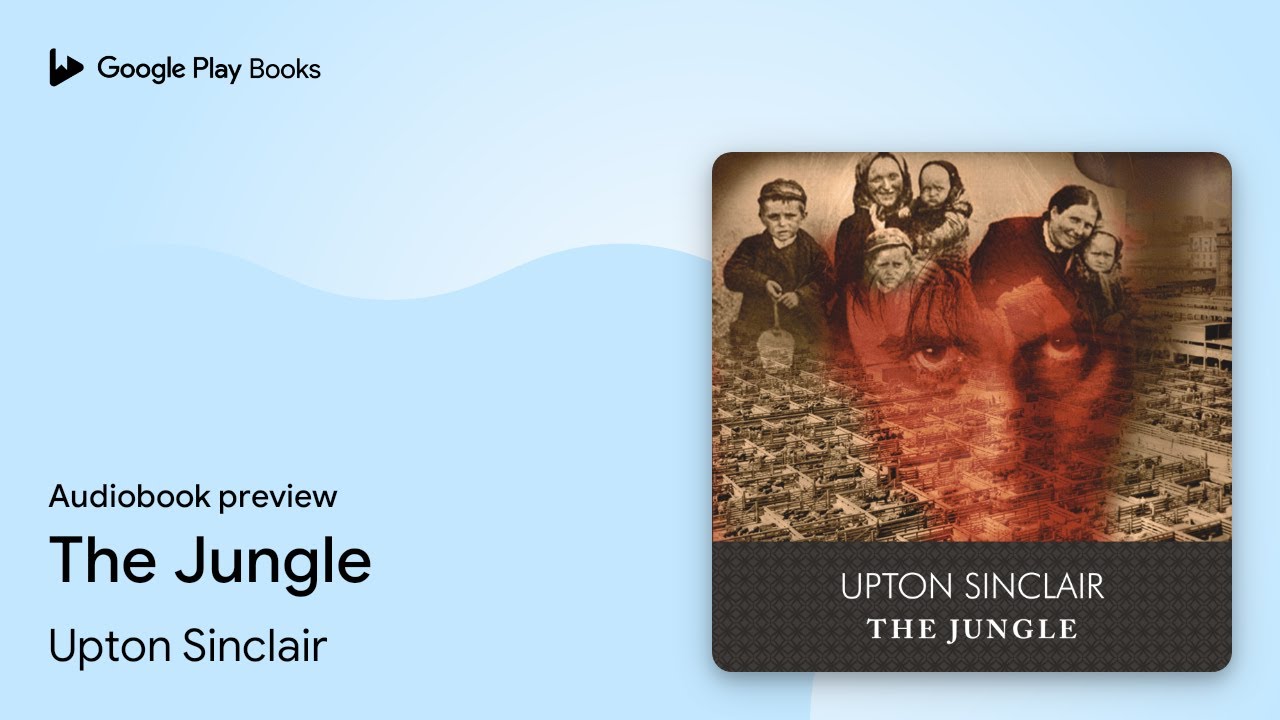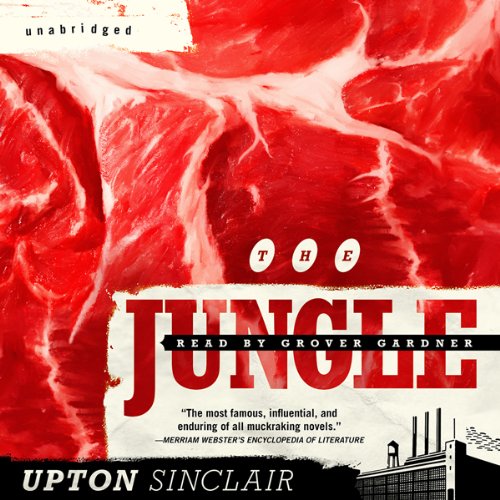**Upton Sinclair – The Jungle Audiobook** “The Jungle” by Upton Sinclair exposes the harsh conditions and exploitation faced by immigrants in the U.S. Meatpacking industry.
This audiobook brings to life the struggles and injustices of early 20th-century laborers. Upton Sinclair’s “The Jungle” is a groundbreaking novel that highlights the dark underbelly of the American meatpacking industry. The story follows Jurgis Rudkus, a Lithuanian immigrant, and his family as they navigate the brutal realities of working-class life in Chicago.
Sinclair’s vivid descriptions and compelling narrative reveal the inhumane conditions and corruption rampant in the industry. The audiobook format allows listeners to immerse themselves in this powerful tale, making the historical and social context even more impactful. Ideal for those interested in social justice, labor rights, and American history, “The Jungle” remains a poignant and relevant work.

The Impact Of ‘the Jungle’ On Progressive Era Reforms
Upton Sinclair’s ‘The Jungle’ shook America. It revealed shocking truths about the meatpacking industry. This led to major Progressive Era reforms. The audiobook version keeps this crucial history alive.
Meat Inspection Act And Pure Food And Drug Act
‘The Jungle’ exposed unhealthy practices in meatpacking. People were horrified. President Theodore Roosevelt took action. This led to the Meat Inspection Act of 1906. It ensured meat was safe to eat.
Another important law was the Pure Food and Drug Act. This law stopped the sale of harmful foods and medicines. It protected consumers from dangerous products.
| Act | Year | Purpose |
|---|---|---|
| Meat Inspection Act | 1906 | Ensure safe meat production |
| Pure Food and Drug Act | 1906 | Stop harmful food and drug sales |
Public Awakening To Labor Conditions
‘The Jungle’ also showed terrible labor conditions. Workers faced harsh and unsafe environments. The public was shocked. This led to demands for better labor laws.
- Long hours
- Dangerous tasks
- Poor wages
These revelations spurred the Progressive Era labor reforms. Workers gained more rights and protections. The audiobook of ‘The Jungle’ continues to highlight these issues.

Upton Sinclair’s Motivation And Research
Upton Sinclair’s novel, The Jungle, is famous. It shines a light on the dark side of the meatpacking industry. His motivation and research were key to uncovering the truth. Let’s explore why Sinclair wrote this book and how he conducted his research.
Sinclair’s Infiltration Into Chicago’s Meatpacking Industry
Sinclair went undercover in Chicago. He worked in the meatpacking industry. This allowed him to see the conditions firsthand. He lived among the workers. He saw their struggles. He noted the unsanitary practices in the factories. This deep dive gave him authentic insights.
| Observation | Impact |
|---|---|
| Unsanitary Conditions | Public Outrage |
| Worker Exploitation | Labor Reforms |
Personal Beliefs Fueling Sinclair’s Exposé
Sinclair was a strong believer in social justice. His personal beliefs fueled his desire to expose the truth. He was a committed socialist. He wanted to reveal the harsh realities of capitalism. He aimed to bring about change. His work was more than just a book. It was a call to action.
- Social Justice: Sinclair wanted fairness for all.
- Worker Rights: He believed workers deserved better conditions.
- Consumer Awareness: He wanted the public to know the truth.
Critical Reception And Legacy Of ‘the Jungle’
Upton Sinclair’s ‘The Jungle’ shook the world upon its release. This powerful novel exposed the harsh realities of the meatpacking industry. It sparked outrage and led to significant reforms. Let’s delve into its critical reception and lasting impact.
Initial Public Outrage And Subsequent Literary Critique
When ‘The Jungle’ was published in 1906, it caused an uproar. Readers were horrified by the conditions described in the meatpacking plants. The vivid descriptions of unsanitary practices shocked the public.
The public outcry was immediate. People demanded changes. The U.S. government responded by passing the Pure Food and Drug Act and the Meat Inspection Act. These laws aimed to ensure safer food production.
Literary critics also took notice. Some praised Sinclair for his boldness. Others criticized his writing style. Despite mixed reviews, the book’s impact was undeniable. It remains a cornerstone of muckraking literature.
The Jungle’s Role In Modern Muckraking
‘The Jungle’ set a precedent for investigative journalism. Muckrakers today draw inspiration from Sinclair’s work. They aim to expose corruption and bring about change. This legacy continues to influence modern media.
Sinclair’s novel also paved the way for other exposés. Books and articles today still use his techniques. They often highlight social injustices and corporate malpractices. This tradition keeps Sinclair’s spirit alive.
| Aspect | Impact |
|---|---|
| Public Reaction | Outrage and demand for reform |
| Government Response | Pure Food and Drug Act, Meat Inspection Act |
| Literary Impact | Mixed reviews, enduring legacy |
| Modern Influence | Inspiration for current muckrakers |
In summary, ‘The Jungle’ had a profound impact. It changed laws and influenced journalism. Its legacy endures, inspiring generations to challenge the status quo.

Conclusion
Discover the power of Upton Sinclair’s “The Jungle” through its compelling audiobook version. This timeless classic continues to resonate. Dive into the harsh realities of early 20th-century America. Experience the gripping narrative and vivid storytelling. Enhance your literary journey with this impactful audiobook.
Don’t miss out on this enriching experience.



